President Trump appears to be inching closer to announcing he is beginning the process of relocating the U.S. Embassy from Tel Aviv to Jerusalem and declaring it Israel’s capital, making good on a campaign pledge key supporters have demanded he fulfill and setting off worldwide warnings that the president’s decision will trigger unrest.
Trump has equivocated on the matter over the past 11 months. He’s already once postponed the relocation by signing a waiver to a 1995 law mandating the move. But he reportedly told aides he didn’t want to sign it again when a semi-annual deadline came again on Monday. As of Sunday, his son-in-law and Middle East negotiator Jared Kushner said Trump still hadn’t decided what to do.
“He’s still looking at a lot of different facts and when he makes his decision he’ll be the one who wants to tell you,” Kushner said at the Brookings Institution in Washington. “So he’ll make sure he does that at the right time.”
Now is not the right time.
Jerusalem is the weightiest and most fraught of what are known as the final status issues to be resolved between Israel and the Palestinians along with borders, security and Palestinian refugees.
Even if Trump was a brilliant negotiator, unilaterally altering U.S. policy regarding Jerusalem to accord with the Israeli position would unnecessarily antagonize a billion Muslims and undercut the United States’ ability to broker a future peace deal. It is also exceptionally unwise to risk another conflagration in the Middle East when it is already engulfed in bloody conflict and instability from Syria to Yemen and tensions are rising between Saudi Arabia and Iran.
Those clamoring for Trump to make good on his promise to relocate the embassy are the president’s Christian evangelical supporters and mega-donors such as Las Vegas casino magnate Sheldon Adelson, who has reportedly been furious at the delay. Members of Prime Minister Benjamin Netanyahu’s right-wing, nationalist coalition are pressing Trump, too.
“I encourage you to do the right thing: recognize Jerusalem as the capital of Israel, and bring the U.S. Embassy home to Jerusalem,’’ Jerusalem Mayor Nir Barkat of Netanyahu’s Likud party said in a video outside the White House on Monday.
Some experts see a possible upside.
“If done wisely/without bombast, moving US embassy to #Jerusalem could repair historic injustice to #Israel wo/harming peace prospects,” Robert Satloff, executive director of the Washington Institute for Near East Policy, tweeted.
But on Tuesday, a cascade of warnings came in from around the globe from Germany to France to the Arab states. Turkey threatened to sever ties with Israel if Trump recognized Jerusalem as the Israeli capital. The State Department ordered U.S. embassies to heighten security. California Sen. Dianne Feinstein warned in a letter to Trump that he “would spark violence, further alienate the United States and undermine the prospects of a two-state solution.”
President Barack Obama before leaving office warned Trump that unilateral action on Jerusalem by the United States would have “enormous consequences and ramifications.”
“If you’re going to make big shifts in policy, just make sure you’ve thought it through,” Obama said. “You want to be intentional about it. You don’t want to do things off the cuff.”
Kushner said Sunday he has a peace plan so maybe Trump will reveal some of it during his Jerusalem declaration, which reportedly could happen as soon as Wednesday.
Saudi Arabia’s reaction could be critical. Kushner flew to Riyadh for an unannounced meeting with Mohammad bin Salman, just days before the Saudi Crown Prince detained hundreds of his cousins and rivals and took control of their assets in a risky power play.
Shortly afterward, Bin Salman summoned the Palestinian President Mahmoud Abbas to Riyadh and — if reports are true — gave him two months to accept an impossible peace agreement or resign: “a Palestinian state with only ‘moral sovereignty’ and noncontiguous territory and without East Jerusalem as the capital; no Israeli settlement evacuation; and no right of return for Palestinian refugees.”
Taken together, it appears Kushner may have promised that the United States would bless Bin Salman’s power grab (Trump tweeted his support) in return for Bin Salman’s help pushing a U.S. peace plan that negotiators knew Abbas would find unpalatable.
The secrecy of the talks makes it hard to know for sure if such a quid pro quo occurred. What’s not hard to see is the risk in singling out Jerusalem for a major American policy shift.
The smallest changes to the status quo of this holy city can trigger violence. In July, Israel installed metal detectors on the route to the Muslim holy sites, sparking clashes. Israel removed them within days.
Israel took control of the eastern part of Jerusalem in the 1967 war. Its parliament and other major institutions are in the western part of the city and Netanyahu has pledged to keep the city united under Israeli sovereignty. The Old City is in the eastern half, which Palestinians demand as a capital of any future state. So as not to be perceived as taking a side, countries keep their embassies 42 miles away in Tel Aviv.
Other presidents have faced domestic pressure to move the embassy but refused because of the risks. Trump may backtrack in the end. He may hedge by acknowledging Jerusalem as Israel’s capital and slow-tracking the actual embassy move. Or he may plow ahead to please his supporters without any care of consequences.
“Don’t underestimate Trump’s desire to disrupt the status quo on Jerusalem on the theory that out of crisis can come an opportunity,” former U.S. ambassador to Israel Martin Indyk tweeted. “He should beware: Jerusalem is a dangerous place to test that theory.”
Janine Zacharia, who teaches journalism at Stanford University, is the former Washington Post Jerusalem bureau chief.

